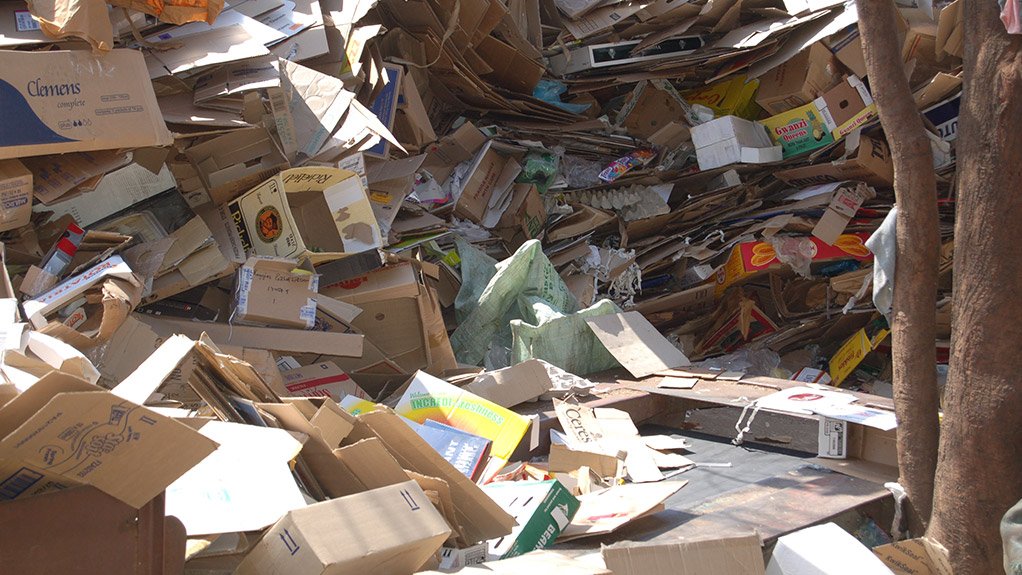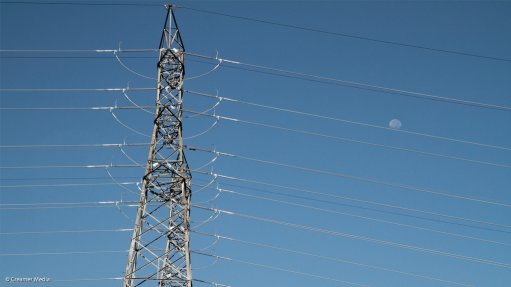Paper remains important in the digital age, despite criticism


PAPER AND BOARD RECYCLING Paper is not only biodegradable but also recyclable
Photo by Paper Recycling Association of South Africa
While the paper industry is facing significant challenges, owing to the increasing use of digital online platforms and the convenience of receiving documents electronically, the electronic distribution of information should not be touted as being more environmentally friendly than distributing information in print format, says Paper Manufacturers Association of South Africa executive director Jane Molony.
“Paper is made from trees, recycled fibre and sugar cane fibre, which are renewable resources. Trees used for paper production are specially farmed, harvested and replanted in a sustainable way. Not only does the sector’s 600-million hectares of trees absorb carbon dioxide (CO2), they also provide us with life- giving oxygen,” she highlights, adding that the entire life cycle of paper needs more credit in terms of its positive carbon footprint.
Moreover, Molony points out, South Africa’s timber plantations lock up 900- million tons of CO2 a year, which provides the country with a significant environmental service and a key means of mitigating climate change.
The industry is often criticised for its impact on the environment, from biodiversity to water and energy use.
“We are no different from other manufacturing and agricultural industries and many of our efforts focus on mitigating our impact through renewable energy, water reduction initiatives, biodiversity conservation and also busting the many pervasive myths about paper production,” Molony argues.
Local plantations have been ranked at the highest level of international certification by independent, international nongovernmental organisation the Forest Stewardship Council (FSC), which was established to promote the responsible management of forests worldwide.
Molony points out that, of the 1.6-million hectares of FSC-certified land, only one- million hectares is allocated to trees. The rest comprises grasslands which have been assessed by the South African National Biodiversity Institute to be the best conserved in the country.
“FSC’s chain-of-custody programme tracks certified material through the production process, from the forest to the consumer, including all the successive stages of processing, transformation, manufacturing and distribution.”
She adds that a 2012 New York Times article, titled ‘Power, Pollution, and the Internet’, states that the energy consumption of massive data centres is “sharply at odds with its image of sleek efficiency and environmental friendliness”, far outweighing that of the paper industry.
Molony does allow that going digital has many benefits, such as convenience, immediacy and efficiency.
However, she says: “It is not that one is better than the other – both are essential – but we need to know when to use paper and when to go digital, and how to use and dispose of both responsibly.”
Molony points out that, in 2009, nongovernmental environmental advocacy organisation Greenpeace identified electronic waste “as the fastest-growing component of the municipal waste stream”.
“As far as possible, use locally produced but especially certified-as-sustainable paper products and recycle,” she emphasises.
The Paper Recycling Association of South Africa’s latest statistics indicate that 1.1-million tons of paper and board was collected in 2012, but only 8% of that constituted white office paper.
However, she emphasises that people should also bear in mind that paper is not just about the material that is put into the printer tray.
“Life without paper would mean a life without magazines, newspapers, books, a passport and the ability to travel, without cardboard to package and protect, without tissues, nappies and toilet paper. “Even in the electronic age, paper products play an essential role in our daily lives,” she concludes.
Article Enquiry
Email Article
Save Article
Feedback
To advertise email advertising@creamermedia.co.za or click here
Announcements
What's On
Subscribe to improve your user experience...
Option 1 (equivalent of R125 a month):
Receive a weekly copy of Creamer Media's Engineering News & Mining Weekly magazine
(print copy for those in South Africa and e-magazine for those outside of South Africa)
Receive daily email newsletters
Access to full search results
Access archive of magazine back copies
Access to Projects in Progress
Access to ONE Research Report of your choice in PDF format
Option 2 (equivalent of R375 a month):
All benefits from Option 1
PLUS
Access to Creamer Media's Research Channel Africa for ALL Research Reports, in PDF format, on various industrial and mining sectors
including Electricity; Water; Energy Transition; Hydrogen; Roads, Rail and Ports; Coal; Gold; Platinum; Battery Metals; etc.
Already a subscriber?
Forgotten your password?
Receive weekly copy of Creamer Media's Engineering News & Mining Weekly magazine (print copy for those in South Africa and e-magazine for those outside of South Africa)
➕
Recieve daily email newsletters
➕
Access to full search results
➕
Access archive of magazine back copies
➕
Access to Projects in Progress
➕
Access to ONE Research Report of your choice in PDF format
RESEARCH CHANNEL AFRICA
R4500 (equivalent of R375 a month)
SUBSCRIBEAll benefits from Option 1
➕
Access to Creamer Media's Research Channel Africa for ALL Research Reports on various industrial and mining sectors, in PDF format, including on:
Electricity
➕
Water
➕
Energy Transition
➕
Hydrogen
➕
Roads, Rail and Ports
➕
Coal
➕
Gold
➕
Platinum
➕
Battery Metals
➕
etc.
Receive all benefits from Option 1 or Option 2 delivered to numerous people at your company
➕
Multiple User names and Passwords for simultaneous log-ins
➕
Intranet integration access to all in your organisation


















